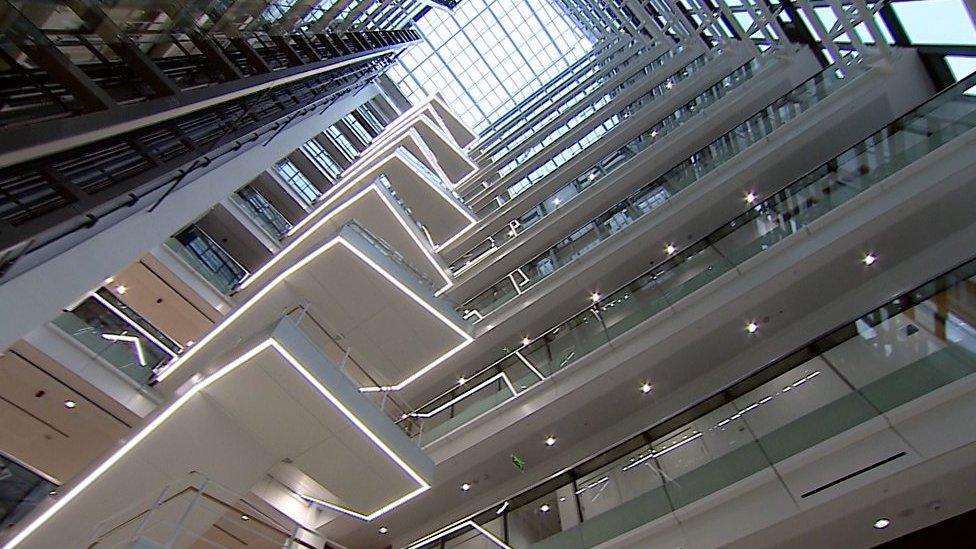Birmingham workplace parking levy: Does it pay to ditch the car?
- Published

Can a levy on employee parking convince people to leave their cars at home?
Businesses with employee parking in Birmingham city centre may be charged £500 for each space. The council says it's the latest bid to bust pollution and would be in addition to fees on cars entering Birmingham's Clean Air Zone (CAZ). But what do those who might pay the price say?
It's just three letters, how bad could it be?
Well, if you're subject to the Workplace Parking Levy - or WPL - it could be bad to the tune of half a grand a time. In other words, a £500 fee for every private parking space a business offers its workforce.
It only focuses on the city centre - and firms offering 10 or more spaces - so not everyone will be affected.
But Birmingham City Council thinks enough are implicated to make it worth its while. There are an estimated 14,500 bays fitting the bill, with the authority looking for a 2024 rollout to generate an annual pot of about £7m.
It says the extra cash would be used for sustainable transport projects, while busting congestion and pollution at the same time.
But who will literally pay the price?
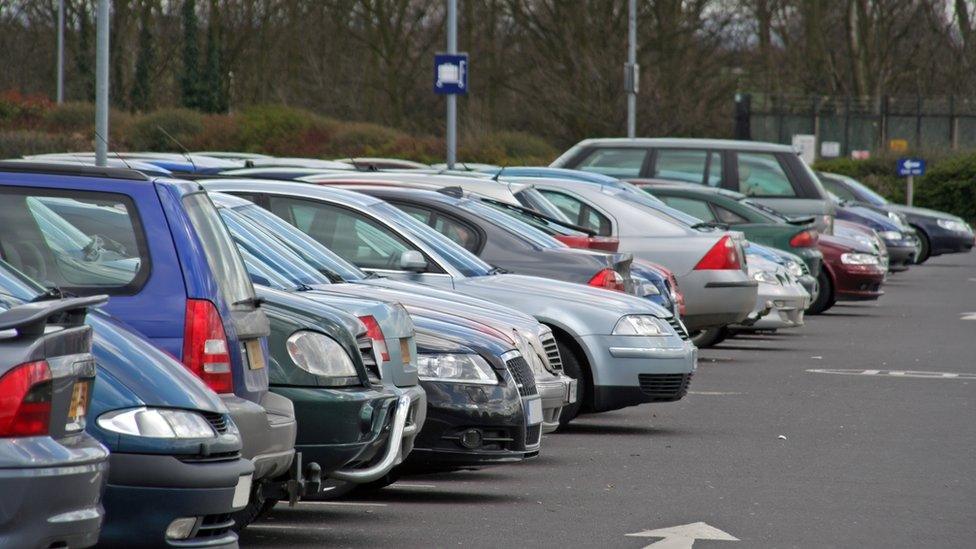
The council estimates it could earn about £7m a year from the scheme
Given the city centre location and a levy worked around a 10-space minimum, it is likely those set to be affected are larger, corporate companies - the pockets of which are deeper than small or medium enterprises.
The RAC, though, immediately raised a couple of issues when news of the council's proposals landed on Monday.
Firstly it said that, on top of CAZ fees, businesses would effectively be taxed for people going to work. And secondly, the fees may be handed down to employees in pay packets.
So, what do people in the city centre have to say?
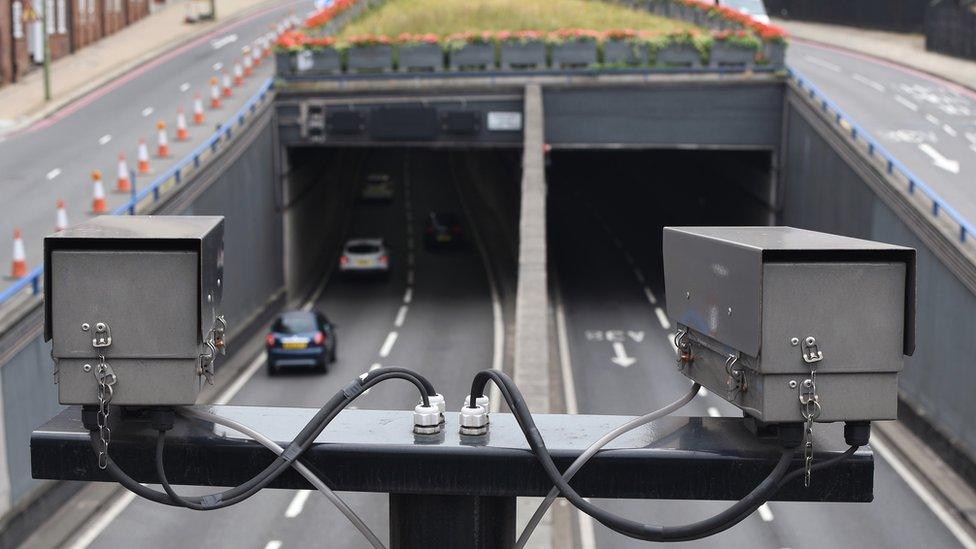
Birmingham is set to introduce its Clean Air Zone in June
Richard Love, managing director of recruitment agency Berwick Partners which employs more than 50 people at its Brindley Place base, said: "Reducing pollution is obviously on everyone's agenda and the city is taking great strides in improving public transport."
But he also sees potential problems.
"There have been several years of significant disruption to the roads, and introducing another disincentive to commuters at this moment could impact our ability to attract the very best talent to the region," he said.
"It would be much better if this could be deferred for a year or two."
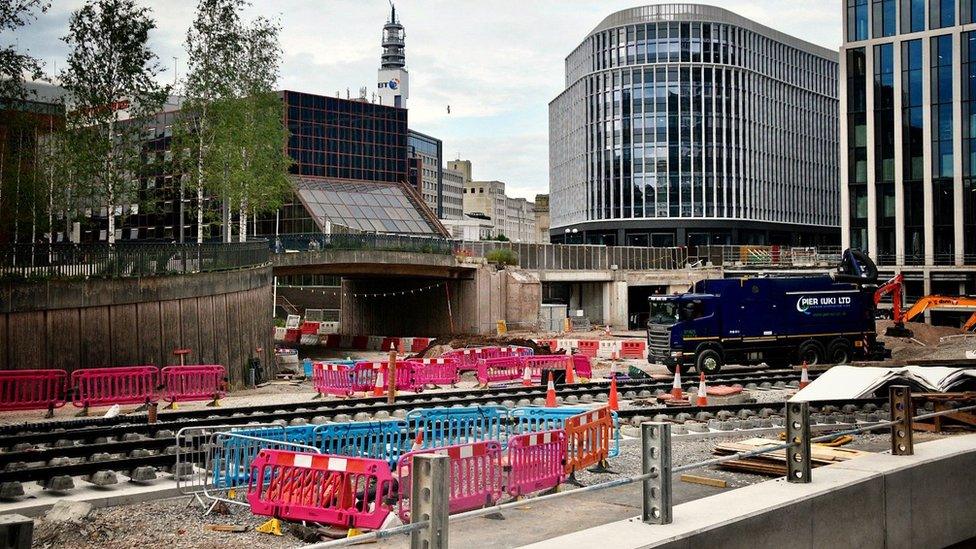
Multimillion-pound redevelopment projects are under way in Birmingham
Banking giant HSBC chose Birmingham for the new headquarters of its personal and business arm. The site opened in February, with 2,000 employees moving in.
It seems untroubled by the council's plans, saying they fit into its existing practice.
A spokesperson said HSBC deliberately limited the number of car parking spaces to encourage workers to cycle, walk or use public transport instead.
The BBC has asked how many parking spaces HSBC offers.
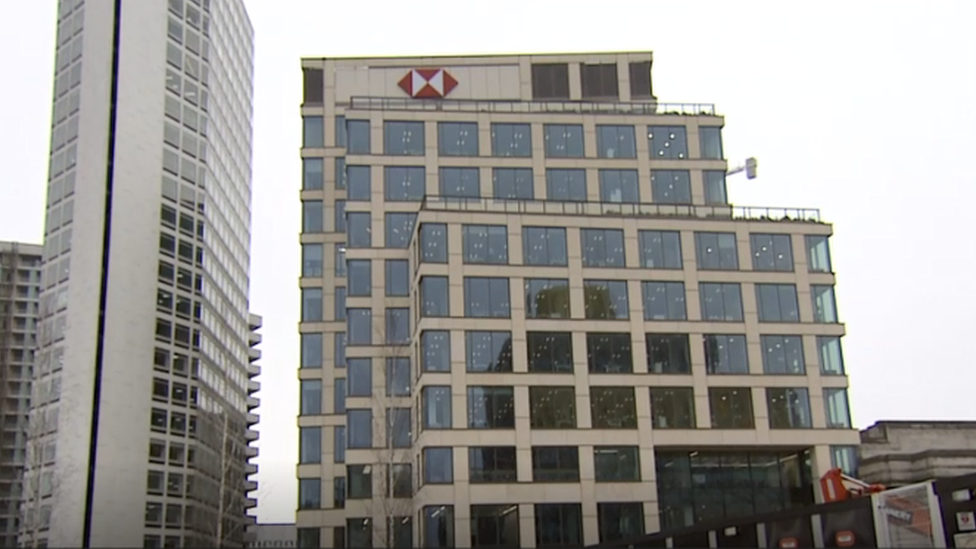
HSBC opened its new headquarters in February
What do motorists think and can they imagine leaving their cars behind?
Well, here's where things get a bit chicken and the egg. The council wants fewer cars and more sustainable transport, while some drivers say they just won't countenance the train or bus until they're first fit for purpose.
Perhaps it's a standoff where the levy might force hands, although, for now, cost doesn't seem a concern for some motorists as much as the alternative to driving.
Lynsey Hopkins's work sees her travel between Birmingham's New Street and University stations. But she says sometimes the train carriages are so overcrowded, people are left on the platforms - and that makes the car look a much better option.
"Public transport infrastructure and capacity really need improving first," she said.
"To get people to leave behind comfortable personal transport in favour of a daily public bun-fight is going to be almost impossible."

Birmingham City Council says it wants things to get greener
Matthew Richards drives to work in Birmingham's Jewellery Quarter every day and is in favour of the WPL, but has some empathy for Ms Hopkins's view.
"I agree with the levy as I spend a lot of my journey closing the air recirculation on my air con so that I don't breathe in dirty diesel fumes," he said.
"Businesses are making a lot of money and never pay for the environmental consequences of driving around in dirty vans."
But that could be about to change with the city centre CAZ - affecting all roads inside the A4540 Middleway ring road - due for rollout in June.
The car driven by Mr Richards, however, is green enough to mean he will be unaffected by the zone's charges, so for now, he is happy to continue as he is.
"The extra convenience is worth it," he said, adding: "I would go back to the buses if they were more frequent and significantly cheaper."
An adult bus pass in Birmingham costs £61 a month.
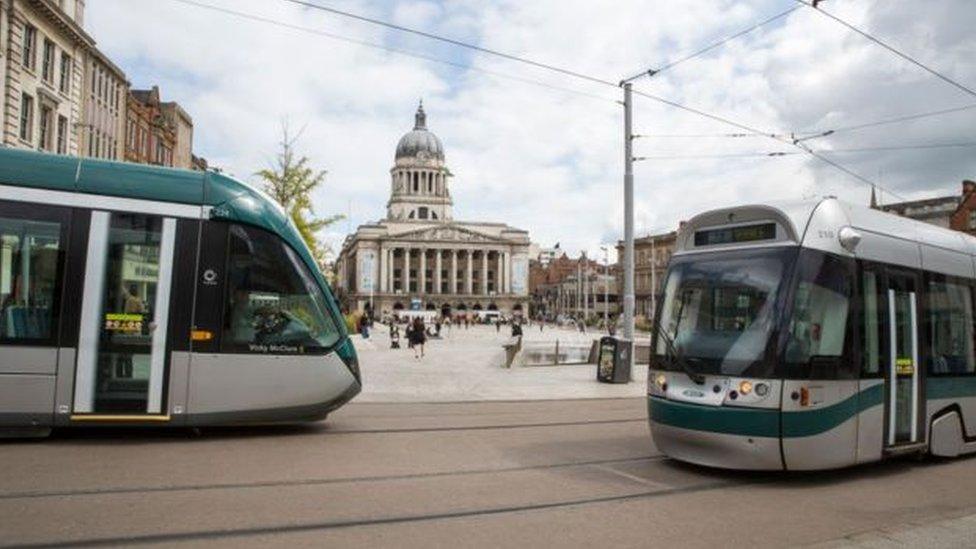
Nottingham has raised more than £50m for sustainable transport projects since 2012
To date, the only city in the UK with a WPL is Nottingham, which introduced it in 2012.
The council leader there, David Mellen, said he was glad Birmingham was considering following in Nottingham's footsteps.
"It's had the effect of reducing congestion," he said.
"It's given us two more lines of a tram, improved our central railway station and helped us to invest in link buses - which are perhaps not commercially viable but actually are needed for people to get to work."

Follow BBC West Midlands on Facebook, external, on Twitter, external, and sign up for local news updates direct to your phone, external.
- Published7 October 2019
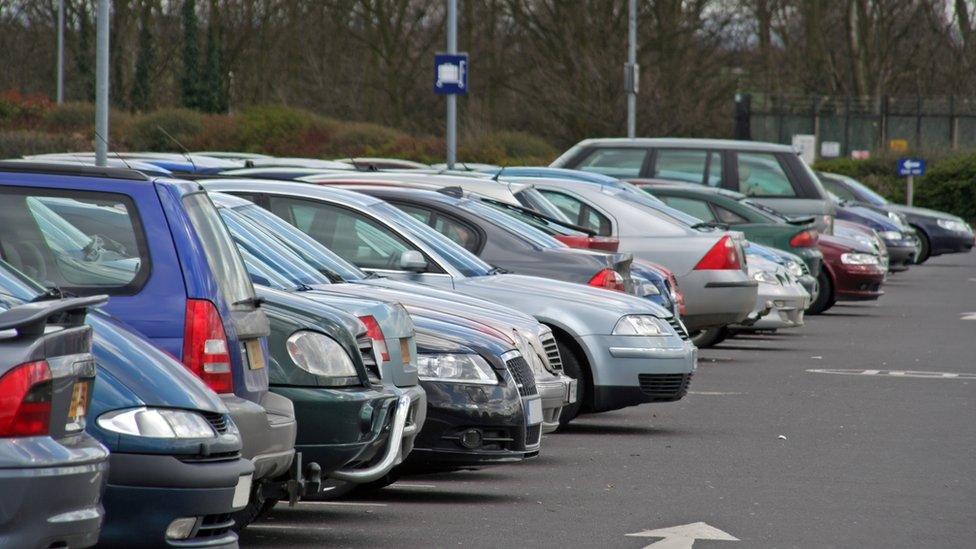
- Published12 June 2019

- Published29 May 2021
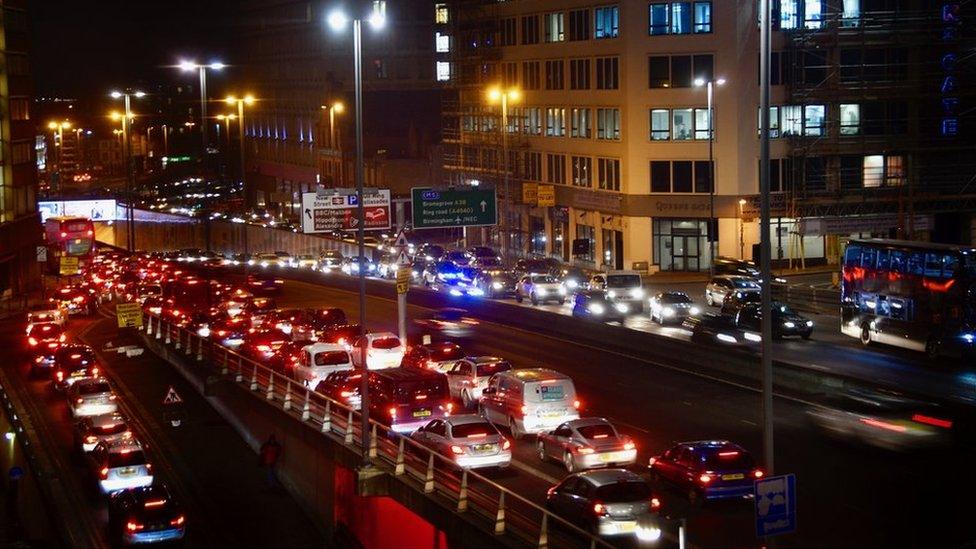
- Published12 March 2019
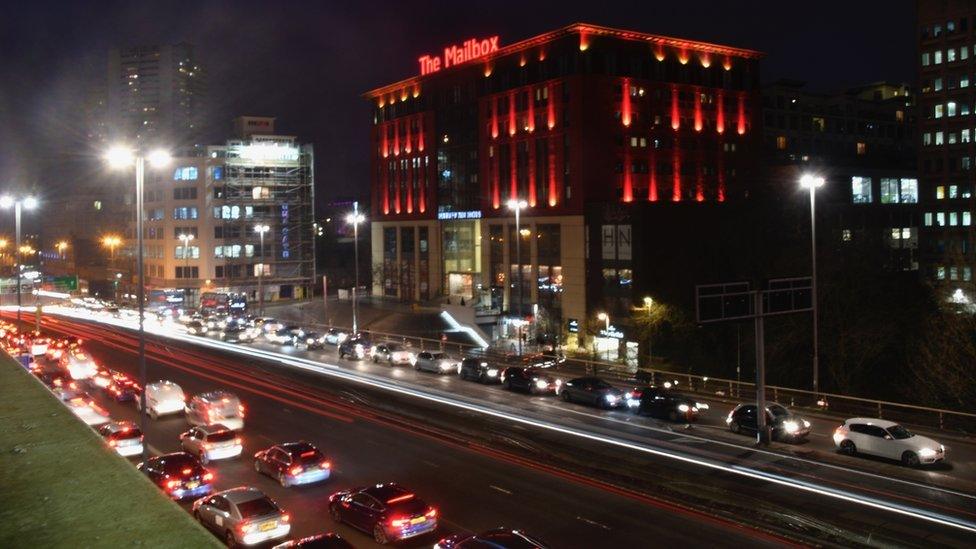
- Published8 February 2019
- Published5 February 2019
